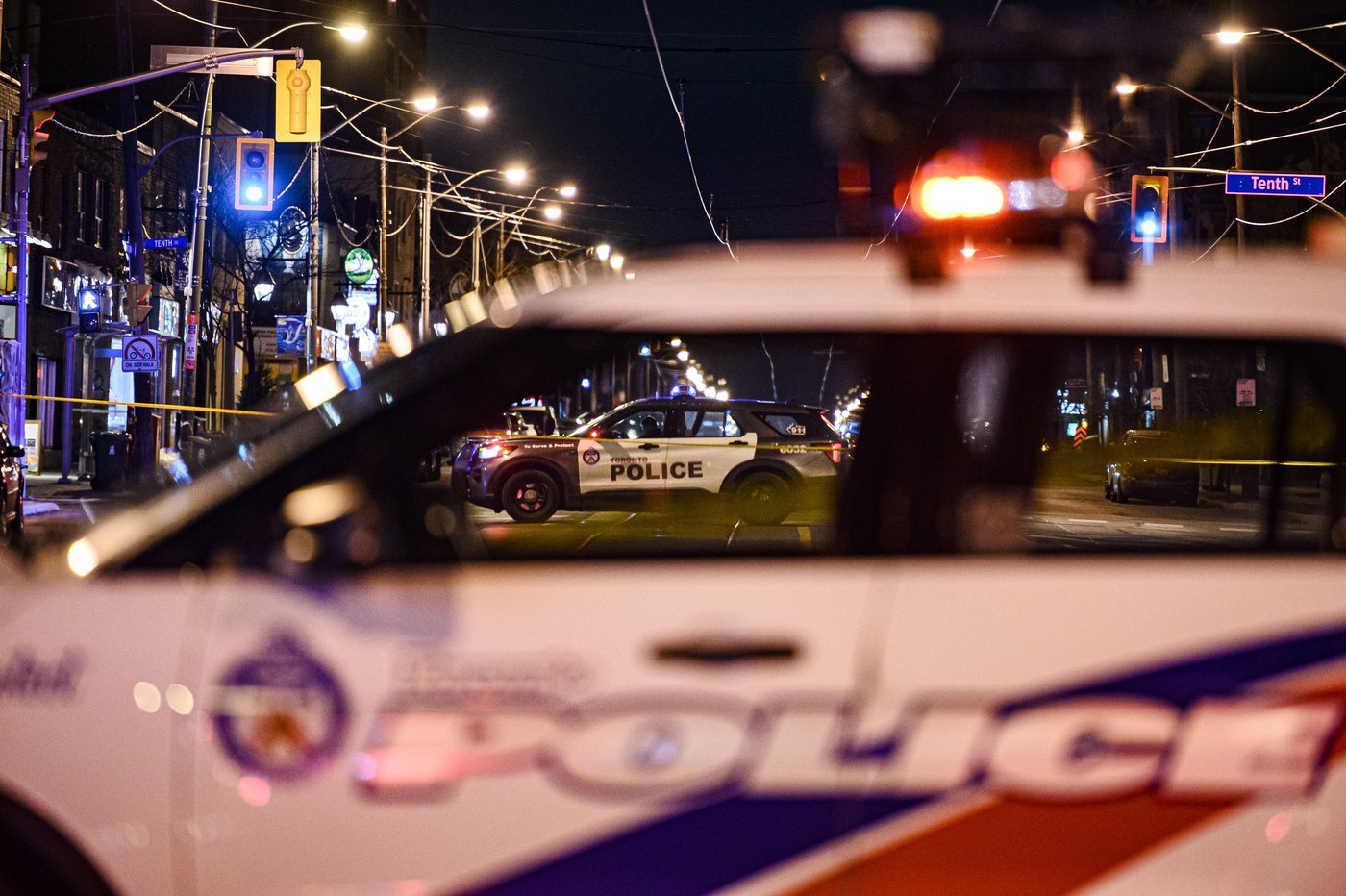Some of Canada’s largest police associations pledged Friday to work to end what they called an “unacceptable wave of violence” following the killings of five police officers in four months.
In a joint statement, the Canadian Police Association, the Police Association of Ontario, the Ontario Provincial Police Association and the Toronto Police Association said they will work to identify the root causes behind the deaths and call for change.
“We are saying today what we are sure most Canadians are feeling: Enough is enough. We cannot allow the deaths of five of our members to go unchallenged,” the groups wrote in the statement.
The associations, which represent about 60,000 sworn and civilian police personnel, said “everything will be on the table” in terms of what they’ll examine, including judicial frameworks and what they call a “growing and chronic” shortage of police officers.
Mark Baxter, president of the Police Association of Ontario, said his association estimates that there is a shortage of 2,000 to 2,500 officers in police organizations across the province.
“A big contributing factor to that is that as our communities have grown, we haven’t increased the complements of our police services at the same rate in which our population is growing,” he said in an interview.
“That obviously is going to have an impact.”
Mental health issues faced by officers are also contributing to the shortages, Baxter said.
“Police officers are exposed to trauma at a much greater rate than that of the general public and as a result of that trauma, they often experience PTSD, other operational stress injuries,” he said. “That is certainly a contributing factor to the shortage.”
In 2021, Ontario’s auditor general found that medical leave taken by provincial officers with post-traumatic stress disorder was significantly contributing to understaffing and affecting service levels at detachments across the province.
The push for more officer resources is at odds with critics’ calls to defund police in favour of redirecting money to community initiatives that aim to address root causes of violence.
Cities across Canada have proposed or approved increases to their policing budgets for this year, leading some advocates to argue that won’t lead to safer cities and call instead for funding boosts to supports such as mental health and housing.
Toronto’s police board is set to meet Monday to decide whether to approve a nearly $50-million funding increase for the city’s police force, which would see the addition of 200 officers.
In a written deputation to that meeting, the Black Legal Action Centre said it was “extremely concerned” by the proposal.
“The solution is not to provide the police with more money for new officers, body scanners or training. It is to de-task the police and to redirect funding into those services that will actually protect, serve and increase the public safety of Black people, and everyone,” the not-for-profit community legal clinic wrote.
The police associations that made their joint pledge Friday also said they’d review judicial and public policy frameworks, including bail and sentencing practices.
There have been recent calls for the federal government to reform its bail policy after OPP Const. Greg Pierzchala, 28, was shot while responding to a call for a vehicle in a ditch west of Hagersville, Ont., on Dec. 27.
Court documents show 25-year-old Randall McKenzie – one of two people accused in the attack on Pierzchala – had been denied bail in an unrelated case involving a number of assault and weapons charges months before the shooting, but was released after a review.
A warrant was issued for his arrest after he failed to show up for a court date in August, the documents show.
Canadian Police Association president Tom Stamatakis said Friday there is a need for reforms to address the cases of violent offenders who engage in criminal activities repeatedly.
“There are a small number of prolific and violent offenders who continue to present a danger to society when released, and we need to find common-sense reforms that will address those cases,” he said.
Baxter said the details of Pierzchala’s killing have highlighted the need for change in the bail system.
“The status quo is not acceptable,” he said.
“The reality is every police officer in this country knows that when they arrest someone and they hold them for bail, often for violent offences, often for firearm offences, they’re being released. And I think what we’re hearing from society is that we need to do better.”
Some, however, disagree with the call for bail reform.
Shawn King, vice-president of the Criminal Trial Lawyers Association, has said the root causes of an offender’s behaviour should be targeted.
“The underlying issue that really needs to be addressed here is not changing the bail policies, it’s trying to deal with the underlying conditions that cause these people to offend,” he previously told The Canadian Press.
Pierzchala was the fifth police officer killed in the line of duty in Canada since September.
In October, RCMP Const. Shaelyn Yang was fatally stabbed in Burnaby, B.C. Days earlier, South Simcoe Police officers Devon Northrup and Morgan Russell were shot at an Innisfil, Ont., home and died in hospital.
Toronto police Const. Andrew Hong was shot dead in Mississauga, Ont., in mid-September.
This report by The Canadian Press was first published Jan. 6, 2023.
Related


































